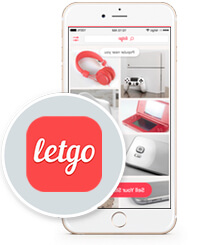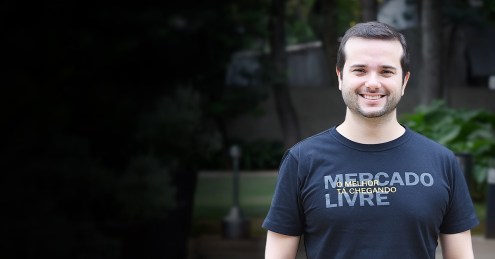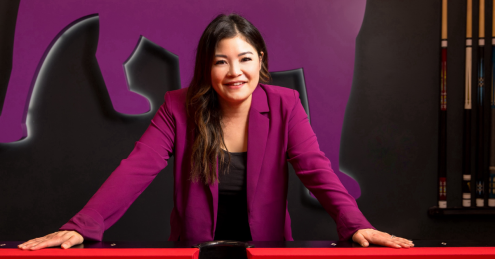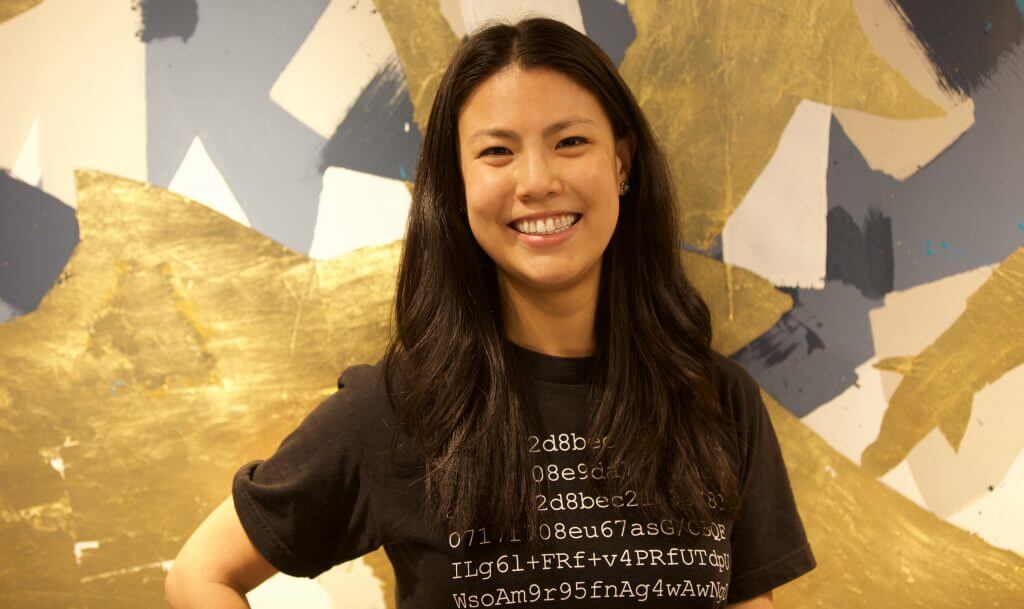Q&A with Evelyn
Evelyn Tong is the User Acquisition Manager for letgo. She’s been at the company after moving from Dashlane, a password manager app, as a Senior Paid Marketing Analyst. Prior to these mobile marketing roles, Evelyn was a consultant where she learned to think strategically like a business stakeholder—a skill she still uses today.
In your own words, tell us about the app(s) that you manage?
letgo is a free app that makes it easy to sell what you don’t need and buy what you do. It’s the fastest growing app of its kind and one of the fastest growing apps overall worldwide since we launched less than a couple years ago.
Posting an item for sale is as easy as taking a photo. letgo’s built on image recognition and AI, so the app can quickly identify your item, title it and categorize it. Browsing is effortless (just swipe) and you can message other users without leaving the app. We’ve also built in user profiles, ratings and reviews. The average home in the U.S. has a few thousand dollars’ worth of things they don’t use anymore. So our team built an app that made it as simple as possible to buy and sell everything from electronics to furniture.
What drove you to get started in mobile marketing?
Mobile marketing is still such a new specialty. So, like a lot of the other “Mobile Heroes” you’ve talked to, I was doing something completely different with my life (management consulting) when I knew it was time for a career change.
In this serendipitous moment, a recruiter reached out with an amazing opportunity to join the performance marketing team at another startup, and I jumped at the chance. From there, I began learning about cross-platform performance channels like search and social, and then specialized in mobile.
What do you like most about mobile marketing?
I love that I get the chance to mix quantitative and creative, and that no two days are ever the same. It’s also a field that evolves constantly because what was working yesterday might not work today. One of the biggest reasons I wanted to join letgo was that this team takes a very analytical and strategic approach to everything they do. And they’re very open to new ideas.
What does it take to succeed in mobile marketing?
A combination of creative and quantitative skills, plus a bit of calculated risk-taking. The key – and this is something letgo’s team does very effectively – is communicating to potential users exactly how the app benefits them and then delivering on that promise. You have to communicate that value in a way that’s creative, engaging and easy to understand or it won’t resonate with prospective users. And you have to be able to get that message across instantly with language and graphics. You need great quantitative skills to figure out exactly how to connect with the users who matter to you. And calculated risk-taking is really just another way of repeating our mantra: “Test, test, test!”
What does a quality mobile user look like to you?
letgo’s goal is to ultimately build the largest secondhand marketplace in the world. So we care a lot more about engaged buyers and sellers than just getting downloads. This focus is a key reason we have tens of millions of active users already buying and selling billions of dollars’ worth of items monthly.
What strategies work best to convert installs into engaged users?
As I said earlier, you have to focus on explaining the app’s value effectively. But, of course, none of it matters if the user experience isn’t great. letgo’s grown as quickly as it has because we offer potential users enormous value and deliver on it as soon as they try the app. A lot of what we’re communicating is about how easy letgo is to use – from image recognition to messaging. And that’s something users see really quickly once they open the app.
How do you stay ahead of changes in technology?
Obviously I check the major tech and advertising publications daily, and have subscribed to many newsletters from a whole range of experts - ex-Googlers, partners at VCs, ad tech company's blogs (Liftoff's Mobile Heroes series is a great one to follow, obviously!).
But the best way is by networking and knowledge-sharing, as well as maintaining a good relationship with our partners so I am informed of and can participate in the alpha or beta programs they’re testing.
What do you see is the next big thing in mobile marketing?
In terms of creative, interactive content has been popping up in a few discussions. In terms of channels, I think the app store search platform is going to continue to evolve. But also, I think mobile attribution is going to become more sophisticated than the ubiquitous last-click model - at the very least, it will evolve into something like desktop tracking, which can take into account impressions as well as referring websites.

















